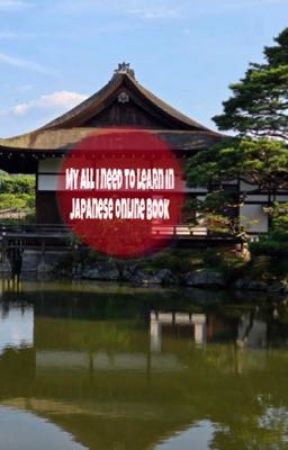So I see you are here to learn Japanese?
You are in the right place then :)
Obviously I do not know you personally or what level you are, so please feel free to swipe through many different levels of Japanese in this online book, this book is currently knew so there isn't any yet but I will work on it as often as I can, but later on in life you will indeed have different options.
now without further ado the most important I would say in learning Japanese is knowing how to pronounce their symbols, people think going straight to learning sentences are the most important (which I mean of course they are very important) but I personally think already knowing how to pronounce each symbol can help you save time as well, this goes for being able to read it in Hiragana and Romanized, before we get straight to it, there are three writing systems in the Japanese language,
First: Hiragana, Hiragana is basically their Japanese alphabet, however, they don't always use hiragana to write every word, let me give you a example the word Hana is "花" which means flower is usually written in kanji as you see in the example, this is because Kanji characters are used to represent words or concepts. Each character often holds multiple meanings and readings, and they are used for most nouns, verbs, adjectives, and proper names, giving Japanese writing more depth and clarity. Kanji is basically borrowed Chinese characters, so yes you might once in a while see familiar or even the exact same symbols in Chinese that you might see in Japanese kanji, however, don't automatically think they mean the same thing or are even pronounced the same because they are usually different, not always! When it comes to meanings, but like almost always for pronouncing! So remember that, just because you learned Japanese kanji doesn't mean you can read Chinese characters now! We basically talked about what kanji is so the last writing system in Japanese is katakana, Katakana is mainly used for foreign loanwords, names, onomatopoeia, technical or scientific terms, and for emphasis in writing, similar to italics in English. For an example, if you wanted to write coffee in Japanese you would write コーヒー, which is pronounced as kōhī, however we will worry about how to say sentences properly later so don't worry about trying to pronounce it now.
Finally we have covered what the three systems are, the word you should learn them is
Hiragana
Katakana
Lastly
Kanji
Okay, finally here are the hiragana, now I wanna add so you can remember how to remember the order in their alphabet I will put them in categories, and you can practice going through the sounds
Vowel Sounds (あ行 - A-gyou)
あ (a) pronounce it like "(A)pple"
い (i) "(E)agle"
う (u) "(O)ops"
え (e) "(eh)" for example "Eh I'm good"
お (o) "(O)pal" or "(O)val"
K-Sounds (か行 - Ka-gyou)
か (ka) "(ca)p" "kit(Kat)" "(ca)t"
き (ki) "(kee)p" "key"
く (ku) "(coo)p" "(coo)l
け (ke) "K" "O(kay)" "(ca)pe"
こ (ko) "(co)ke" "(co)pe" "(co)ping
S-Sounds (さ行 - Sa-gyou)
さ (sa) "(sa)p" can sometimes sound like "sun"mixed with "(sa)p" with saying ones name
し (shi) "(shee)p" "(shea)th" "she"
す (su) "(sou)p" "(Soo)n" "Sue"
せ (se) mix "(se)t" with "(me)t" it's basically "(me)t" but with se "seh"
そ (so) "so" "(soa)p" "(so)fa
T-Sounds (た行 - Ta-gyou)
た (ta) "(ta)p"
ち (chi) "(chea)p" "(chie)f" "bea(ch)" with a added "I" that's pronounced as "e"
つ (tsu) it's basically "su" but with a added "t" like "(ts)k) and "(tsu)nami" this one's a bit tricky so Start with a "ts" sound, as in the end of the English word "cats" Immediately follow it with a short "u" sound, which is like the "oo" in "food" or "zoo" but shorter
て (te) "(te)n" the e is pronounced like in "bed" or "let"
と (to) "(to)e" The "t" is soft, like the "t" in "top".
2. The "o" is pronounced like the "o" in "go", but shorter, so pronounced as toh with a short, clean "o" sound.

YOU ARE READING
My all I need to learn Japanese Online book Study!!
RandomHOW TO SPEAK, READ, WRITE, in Japanese very well! For both you and Japanese people to understand well! (Includes or will include soon, the three writing systems, Hiragana , Katakana, Kanji, proper sentences, SOV order, slang, difference between Toky...
